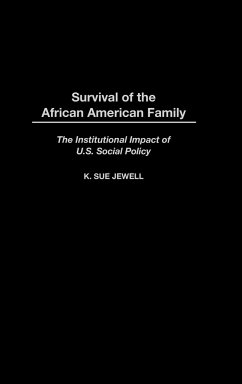Challenging widely held beliefs, this provocative book offers nothing less than a blueprint for enhancing the social and economic status of African American families. Despite the implementation of liberal social policies in the 1960s and '70s, successive U.S. administrations continue to dash the hopes and expectations of African Americans, who remain subject to racism and discrimination. Arguing that social policies-and their absence-have affected the stability of the African American family, Jewell refutes the myth of significant progress for African American families emanating from the civil rights era, exposing the myriad reasons why greater advancement toward equality has not occurred in major societal institutions. Attention is focused on the extent to which African American families have been adversely affected by a process of assimilation that was socio-psychological rather than economic. This new edition builds upon the first edition, and is revised and expanded to reflect new and persistent institutional policies and practices of race, gender and class inequality facing African American families. The revised edition explores such issues as racial profiling, capital punishment, police brutality, predatory lending, No Child Left Behind, welfare reform, affirmative action and racial disparities in healthcare, academic achievement and home ownership. Jewell proposes a variety of strategies and policies that are needed to ensure greater social and economic equality and justice for African American families.
Hinweis: Dieser Artikel kann nur an eine deutsche Lieferadresse ausgeliefert werden.
Hinweis: Dieser Artikel kann nur an eine deutsche Lieferadresse ausgeliefert werden.








